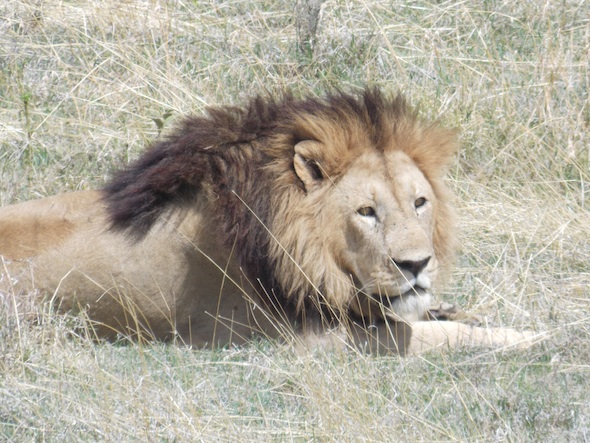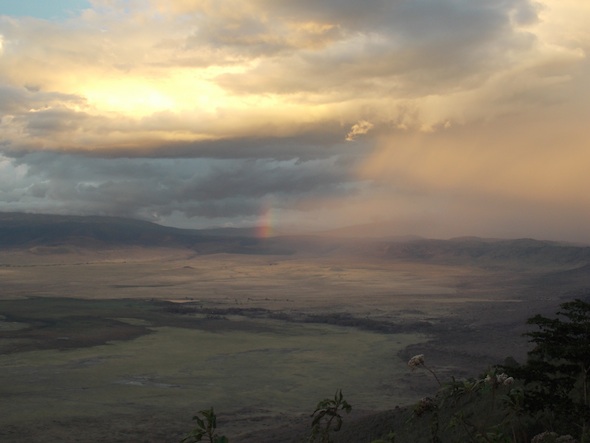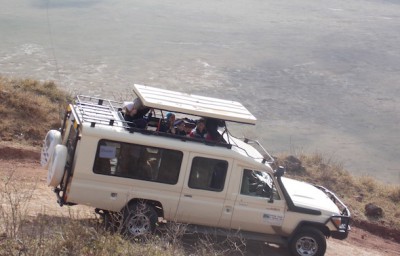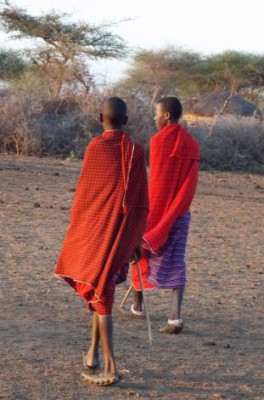Fourteen months have passed since I undertook the two-day safari in Ngorongoro Crater, a large volcanic caldera within the Ngorongoro Conservation Area, 180km west of Arusha. Ample time that went by gave me an opportunity to reflect on the real meaning of this type of wildlife tourism.
The thinking that nature is only wild when uninhibited exemplifies the irony that safari reserves are built on. Despite the fact that big-game hunting continues to be a popular practice in Africa, safaris in the regions tend to be associated with wildlife and habitation conservation. The conservation parks’ trustees are committed to eliminating any kind of interference with the natural landscape. Maasai were already evicted from the famous Serengeti and are now forced to leave Ngorongoro Conservation Area as well.
“There was a group of tourists visiting one of the parks here in Tanzania,” our safari guide in Ngorongoro Conservation Area told us. “After seeing Maasai and their dwellings, one of the visitors made a call to an environmental organization complaining about the presence of humans within the park. The organization is now pressing Maasai to remove their homes and cattle that are within the park’s borders,” he added. As a result, many Maasai families were already forced to leave.
It is rather ironic that we are protecting the animals at the expense of our own species, a group whose knowledge of coexistence with the natural world has been passed on for many generations.
Maasai are pastoralists whose historical journey led them from the very north of Africa to the eastern countries, such as Kenya, Tanzania, Uganda… where they settled. Their whole life was and continues to be based on direct symbiosis with nature and its wildlife. Their philosophy of being explains the system of life that is built on the basis of three pillars: natural resources, people, and livestock. Recognizing the strong mutual interdependency between the three allows them to survive.
Yet, despite their vast knowledge of nature, their wilderness dwelling experience is denied. International tourism companies organizing safari trips, such as the Massachusetts-based Thomson Safaris, are pushing the group aside, accusing its grazing cattle of destroying the wild habitat.
Lesingo Ole Nanyoi and other Maasai herdsmen were quoted in The Guardian stating that, “angry confrontations occur with the unarmed Thomson guards all the time.” Alex Renton, the author of The Guardian article, furthermore notes that, “two herdswomen claim they were beaten in one fracas last year; both were pregnant and both lost their babies.” Privileged residents from abroad, however, continue their ‘prestigious’ hobby, which is yet another paradox of the highly profitable safari business.
Many would argue that, as a critical and usually very luxurious part of tourism, safari parks represent an important source of income for numerous African nations. Yet, there is no return for the local communities who sacrifice their livelihoods for the “well-being” of their homeland.
I could never deny that my visit to Ngorongoro Crater was an unforgettable experience… a utopia, which faded upon the return to Moshi when I recognized that safari reserves are starting to misplace their main objective of protection and education. Instead they are becoming yet another profit-driven corporation. Why do we conserve? To save or to profit?




